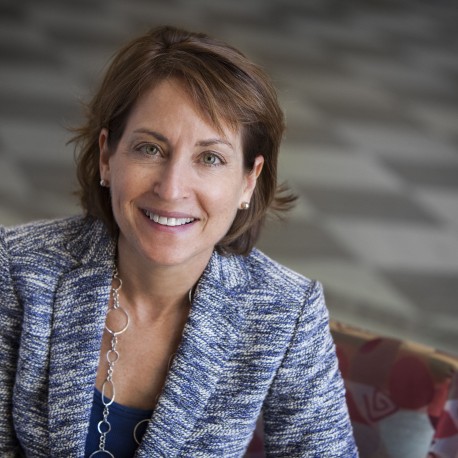Date/Time
Date(s) - 09/12/2016
3:00 pm
Stress Redefined – Mechanobiology and Survival of the Intervertebral Disc Cell
Intervertebral disc disorders contribute to pain and disability in millions of affected individuals annually, contributing to low back pain’s ranking as #1 in disease impact in the USA. Pathological processes for resident cells of the intervertebral disc, the nucleus pulposus cells, contribute to premature cell death that can drive loss of intervertebral disc height, tissue destruction and herniation. These nucleus pulposus cells are derived from notochord, unlike the neighboring mesenchymal cells, and are responsible for tissue synthesis and growth in the neonate. With loss of this cell population in the first decades, the intervertebral disc experiences altered disc biochemical composition, cellularity, and material properties that are major contributors to disc pathology. Our laboratory has studied factors that regulate nucleus pulposus cell phenotype and demonstrated an ability to promote biosynthesis and survival through interactions with laminin matrix proteins. We have also advanced knowledge of environmental cues that promote a healthy, biosynthetically active nucleus pulposus cell, factors that can be manipulated to attenuate inflammatory cytokine expression, promote matrix biosynthesis, and control progenitor cell differentiation. In this talk, we will describe our work with engineering substrates and protein-conjugated biomaterials to deliver cells to the disc for regeneration purposes.
Bio:
 Dr. Setton received her B.S.E. from Princeton University in Mechanical and Aerospace Engineering, with M.S. and Ph.D. degrees in Mechanical Engineering from Columbia University. Dr. Setton joined the Department of Biomedical Engineering at Duke University in 1994, where she served as the Bevan Distinguished Professor of Biomedical Engineering and Orthopaedic Surgery. Dr. Setton recently joined the Department of Biomedical Engineering at Washington University to accept the position as Lopata Distinguished Professor of Biomedical Engineering & Orthopaedic Surgery.
Dr. Setton received her B.S.E. from Princeton University in Mechanical and Aerospace Engineering, with M.S. and Ph.D. degrees in Mechanical Engineering from Columbia University. Dr. Setton joined the Department of Biomedical Engineering at Duke University in 1994, where she served as the Bevan Distinguished Professor of Biomedical Engineering and Orthopaedic Surgery. Dr. Setton recently joined the Department of Biomedical Engineering at Washington University to accept the position as Lopata Distinguished Professor of Biomedical Engineering & Orthopaedic Surgery.
Dr. Setton’s research focuses on understanding the mechanisms for degeneration and regeneration of soft tissues of the musculoskeletal system. Recent work focuses on development of in situ forming hydrogels for drug delivery and tissue regeneration in the knee joints and spine. She has funded her lab through grants from the NIH, NSF, Whitaker Foundation, Coulter Foundation, OREF, AO Foundation, and North Carolina Biotechnology Center and research agreements with many corporations.
Dr. Setton has over 170 peer-reviewed publications and has licensed several patents for commercial development. She has served on the Editorial Advisory Boards of the Annual Reviews of Biomedical Engineering, Journal of Biomechanical Engineering, Osteoarthritis and Cartilage, and Journal of Biomechanics. She has also served as a permanent member of NIH and NSF study sections, as a consultant to NIH and AAOS, and on the Boards of the Biomedical Engineering Society, Orthopaedic Research Society and World Council on Biomechanics. Dr. Setton is a Fellow of the BMES and the AIMBE, and has received a PECASE Award, Dean’s Award for Outstanding Research, Graduate Dean’s Award for Excellence in Mentoring, and ASME’s Mow Medal. Dr. Setton will serve as President of the Biomedical Engineering Society from 2016-2018.